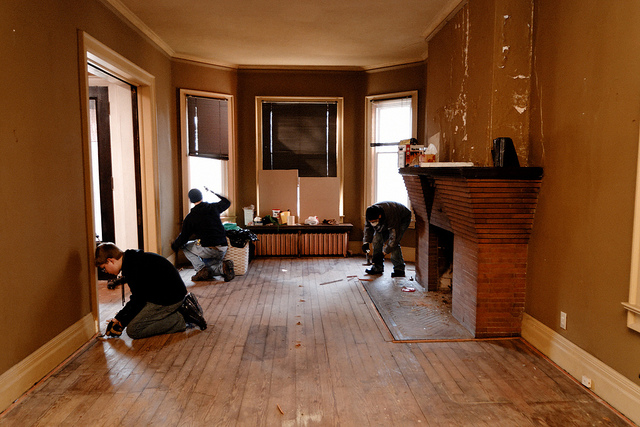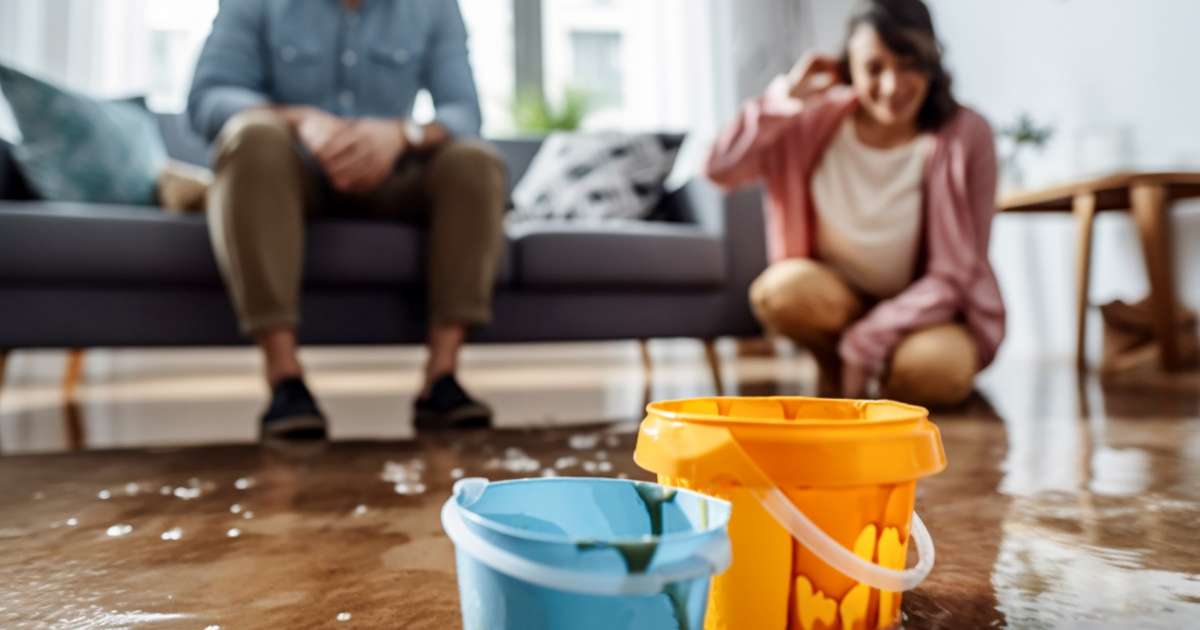Making the right repairs and updates can really boost your home value when you’re trying to sell, but you don’t have to fix everything. Here are some repairs you can skip, some repairs you’ll probably want to make, key points on Georgia law and FHA minimum property requirements, and what to do when you’d rather skip repairs altogether.

Repairs you can skip when selling a house
Here is a list of common repairs that house sellers can skip most of the time.
- Minor cosmetic problems: You’ll want to clean and paint, but don’t obsess over every scuff, scratch, or flaw that shows up in your house.
- Minor electrical issues: Most of the time, you won’t need to bother with minor electrical updates like fixing dead light switches and replacing two-prong outlets. As long as everything is safe, you can usually leave electrical upgrades to the buyer.
- Old appliances: Unless something is broken, missing, or a real eyesore, you shouldn’t have to spend money on updating appliances. If you do need to replace a bad refrigerator, washing machine, or other appliance, look for discounted and lightly used options instead of buying a brand-new product.
- Getting up to code: Older houses may have features that are grandfathered in. Don’t bother getting everything up to city code if you don’t have to.
- Windows: If your windows are working and intact, just clean them inside and out, and spend the money elsewhere.
- Driveways, walkways, and sidewalks: Cracks in driveways and sidewalks rarely need to be fixed before selling, and there is no real need to pave over a dirt, grass, or gravel driveway. If the sidewalk in front of your house is raised up, caved in, or creates a tripping hazard for pedestrians, it may be the homeowner’s responsibility to make repairs. The rules here can vary depending on the area.
- Trendy updates: Personal tastes vary from buyer to buyer, so you don’t need to worry about installing the latest fixtures or painting your walls this season’s popular color. A clean house with working features should do just fine in the Atlanta real estate market.
- Major renovations: The cost of home renovations such as rebuilding a fireplace or remodeling a kitchen aren’t always worth the investment when you’re trying to sell.
There may be situations where you need to make the improvements above. Some of the time though, these repairs are not necessary to satisfy buyers or can even make it harder to sell your house. Consider your property’s circumstances before making a final decision.
Recommended repairs to make when you’re selling a house
The repairs below are either important to the soundness of the house or have a traditionally strong return on investment:
- Structural issues: Foundation cracks, bowed walls, and a sagging roof are all signs that your house is having structural issues. You may want to speak to an engineer or other building expert before you put your property on the market.
- Major electrical problems: Bad wiring, overloaded circuits, and similar electrical problems are hazardous and may affect your ability to close on a sale. A skilled electrician or home inspector should be able to identify these problems and recommend any necessary repairs.
- Plumbing problems: Leaky pipes and blocked drains are two examples of plumbing problems that can do a lot of damage to your house. If you see any symptoms of plumbing issues, such as standing water in your yard or mildew on your walls and ceilings, you might want to call a professional.
- Roofing: You might be able to sell a house with an older roof, but it can be a good idea to fix any major damage before you list your house.
- Major cosmetic issues: If your house has old carpets, dated linoleum, or other visual problems that really stand out, it may be worth your while to update these areas.
- Painting: A fresh coat of paint should make your home more inviting to buyers. Stick with neutral colors like beige and off-white.
- Refinish hardwood floors: A lot of sellers have found that refinishing their hardwood floors gives a good return on investment when they go to sell.
Do sellers need to fill out a home disclosure in Georgia?
Georgia is a “buyer beware” state, which means that it is up to buyers to do due diligence on the property they want to purchase. No seller disclosure is required.
There are some legal responsibilities Georgia home sellers have. You will need to:
- Disclose material defects: Material defects are major issues that cause safety concerns or can bring down the value of the property. Examples of material defects include foundation problems, faulty wiring, and leaky roofs. You’ll also need to mention any hidden issues you know about, like asbestos or lead in the house.
- Answer questions honestly: In Georgia, sellers have to answer buyers’ questions honestly. So, if a buyer asks about things like past water damage or whether the house has ever had a pest issue, you’ll need to share the details.
If you disclose material defects and are honest with your buyers, you should be covered in most cases.
Do sellers need to be concerned about minimum property requirements?
Most traditional buyers will use financing of some sort. If they are buying your house through an FHA loan, meeting the minimum property requirements will be a must.
Material defects like the ones mentioned above will affect your buyer’s ability to use FHA financing. The FHA will also look at factors like soil contamination, drainage, site hazards, and nuisances on or near your property, as well as wood-destroying insects like termites in your house.
When home repair costs are too much, consider selling with We Buy Ugly Houses®.
Now you know what to fix and what not to fix when selling a house. What do you do if getting your house ready for sale takes more time and effort than you’re willing to invest?
In these cases, you can reach out to an Atlanta off-market buyer like We Buy Ugly Houses. We buy houses “as is,” which means you won’t have to make any repairs, large or small. We Buy Ugly Houses purchases all kinds of properties, and we’ve bought more than 150,000 houses nationwide over the last 29 years.
Before you make repairs, schedule a free, no-obligation consultation with one of our friendly property buyers!
This blog is for informational purposes only and should not be considered legal advice.











